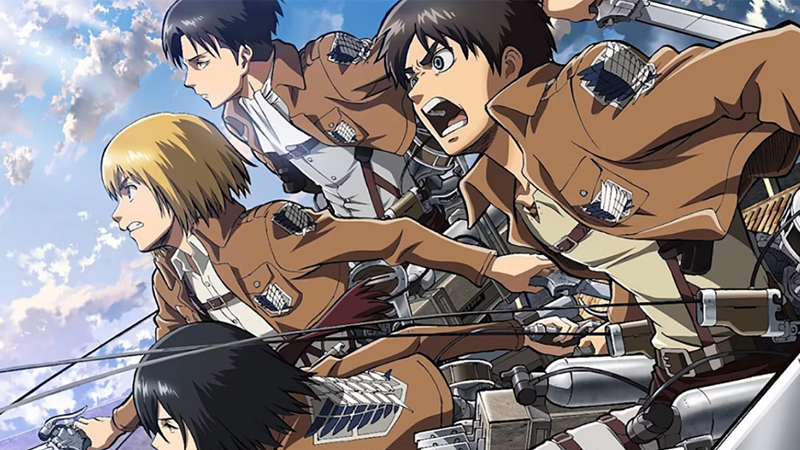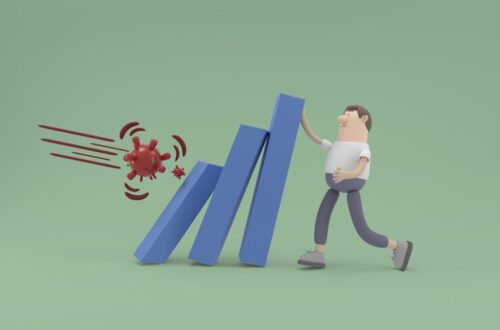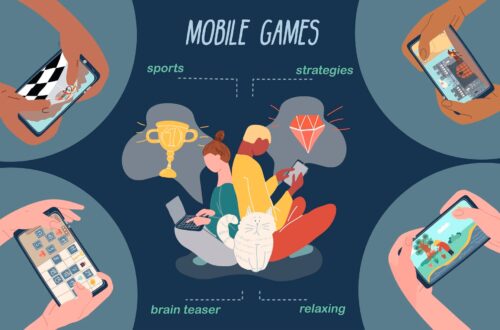“Attack on Titan,” or “Shingeki no Kyojin,” has captivated audiences globally with its gripping storylines and intricate characters. Created by Hajime Isayama, the series delves into themes of survival, freedom, and the human condition against a backdrop of a world ravaged by Titans—enormous humanoid creatures that threaten humanity’s very existence. This article explores key Attack on Titan characters, analyzing their development, motivations, and the pivotal roles they play in the narrative.
Eren Yeager: The Reluctant Hero
Eren Yeager serves as the primary protagonist of “Attack on Titan.” Initially portrayed as an impulsive and passionate young man, Eren’s life takes a tragic turn when Titans invade his hometown, leading to the death of his mother and prompting his desire for vengeance. His determination to eradicate Titans and achieve freedom for humanity drives him to join the Survey Corps.
As the story unfolds, Eren undergoes significant transformation. He discovers his ability to transform into a Titan, which complicates his identity and mission. Eren’s character arc is marked by intense moral dilemmas, as he grapples with the ramifications of his actions. His evolution from a hopeful youth to a brooding leader raises profound questions about the nature of freedom. Is it worth sacrificing others to achieve one’s ideals? Eren’s increasingly ruthless decisions, especially in the later arcs, challenge viewers to confront the darker sides of human ambition.
Mikasa Ackerman: The Protector
Mikasa Ackerman is one of the most formidable soldiers in the series and Eren’s adoptive sister. Her character is defined by fierce loyalty, shaped by a traumatic childhood that saw the brutal murder of her parents. After being saved by Eren, Mikasa vows to protect him at all costs, leading her to become a pivotal figure in the fight against the Titans.
Mikasa’s journey is one of personal growth and self-discovery. While her combat skills are exceptional, her emotional struggles are equally significant. She battles with her feelings for Eren and the weight of her protective instincts, often feeling overshadowed by her own abilities and the expectations placed upon her. Her character raises essential themes of love, sacrifice, and the impact of trauma. As the series progresses, Mikasa seeks to balance her dedication to Eren with her own identity, leading to profound internal conflicts.
Armin Arlert: The Strategist
Armin Arlert, Eren’s childhood friend, starts as a timid and insecure character, often overshadowed by Eren and Mikasa. However, his intelligence and strategic acumen become crucial to the Survey Corps’ efforts against the Titans. Armin’s character exemplifies the idea that bravery can manifest in many forms, often requiring one to confront their deepest fears.
As the series progresses, Armin undergoes a dramatic transformation, particularly after inheriting the power of the Colossal Titan. This shift not only amplifies his abilities but also heightens the stakes for his character. Armin grapples with the moral implications of his newfound power and the responsibilities that come with it. His evolution from a hesitant boy to a decisive leader illustrates the themes of hope, intellect, and the potential for change in dire circumstances. Armin represents the notion that courage often lies in the pursuit of knowledge and understanding, even amidst chaos.
Levi Ackerman: The Stoic Leader
Captain Levi Ackerman, often regarded as humanity’s strongest soldier, brings a stoic and pragmatic approach to the battle against Titans. His backstory, marked by hardship and loss, shapes his worldview and approach to leadership. Levi’s combat skills and unwavering commitment to his mission make him a natural leader, but his emotional depth is revealed through his interactions with his subordinates.
Levi embodies the harsh realities of war, often making difficult decisions for the greater good. His mentorship of Eren and Mikasa showcases a more vulnerable side, revealing his desire to protect those under his command. Levi’s character raises important questions about leadership, sacrifice, and the emotional toll of conflict. His journey underscores the series’ exploration of the burdens leaders bear and the complexities of human relationships forged in the crucible of war.
Historia Reiss: The Hidden Queen
Historia Reiss, initially introduced as the gentle and timid Krista Lenz, undergoes a remarkable transformation as she learns about her royal lineage. Her character arc is a compelling exploration of identity and responsibility. As she embraces her role as Queen Historia, she confronts the weight of her position and the expectations placed upon her.
Historia’s journey emphasizes themes of self-acceptance and the struggle between personal desires and societal obligations. Her character highlights the importance of recognizing one’s potential and the strength found in vulnerability. As she takes on leadership responsibilities, Historia becomes a symbol of hope for a new era, showcasing the power of individuals to rise above their circumstances and effect change.
Erwin Smith: The Visionary Leader
Erwin Smith, the charismatic and strategic leader of the Survey Corps, embodies the pursuit of truth at any cost. His unwavering dedication to uncovering the mysteries surrounding the Titans and the world they inhabit is driven by a deep sense of purpose. Erwin’s willingness to make sacrifices for the greater good adds layers to his character, prompting viewers to reflect on the morality of ambition.
Erwin’s character raises crucial questions about leadership and the ethical dilemmas faced by those in power. His famous speeches rally his comrades, inspiring them to fight against insurmountable odds. However, his relentless quest for knowledge often comes at a steep price, including the lives of his comrades. Erwin’s complex persona challenges audiences to consider the fine line between heroism and hubris in the face of overwhelming challenges.
Reiner Braun: The Double Agent
Reiner Braun, introduced as a loyal member of the Survey Corps, is later revealed to be a warrior sent by Marley to infiltrate humanity. This duality creates a rich narrative filled with internal conflict and psychological struggle. Reiner’s character grapples with his loyalty to his friends and his duties as a warrior, embodying the theme of betrayal and the complexities of human relationships.
Reiner’s internal battles are indicative of the broader conflicts in the series, as he struggles to reconcile his identity as a soldier for Marley with his friendships among the Eldians. His character prompts discussions about the nature of loyalty, the pain of betrayal, and the moral ambiguities present in war. Reiner’s struggles highlight the emotional toll that dual allegiances can take on individuals, showcasing the series’ emphasis on the multifaceted nature of humanity.
Zeke Yeager: The Beast Titan
Zeke Yeager, the Beast Titan, emerges as one of the series’ most complex characters. As the royal heir of the Eldians, Zeke’s motivations are rooted in his desire to end the cycle of hatred between Eldians and Marleyans. His character raises profound questions about the nature of freedom, the responsibilities of power, and the lengths one will go to achieve their ideals.
Zeke’s ideological clash with Eren reflects the series’ broader themes of revolution and the consequences of one’s choices. He embodies the conflict between pragmatism and idealism, illustrating the difficult choices that leaders must make in pursuit of their goals. Zeke’s journey challenges viewers to consider the implications of revolutionary actions and the potential for redemption amidst a cycle of violence.
Conclusion
The characters of “Attack on Titan” are intricately woven into the fabric of the narrative, each contributing to its exploration of complex themes such as freedom, sacrifice, and the human experience. As viewers follow their journeys, they are invited to reflect on the moral dilemmas faced in a world fraught with danger and uncertainty. The depth of these characters not only enriches the story but also resonates with audiences, making “Attack on Titan” a profound exploration of humanity in its darkest hours. Each character’s journey illustrates the intricacies of human nature, compelling viewers to confront their own beliefs about loyalty, freedom, and the costs of ambition.





